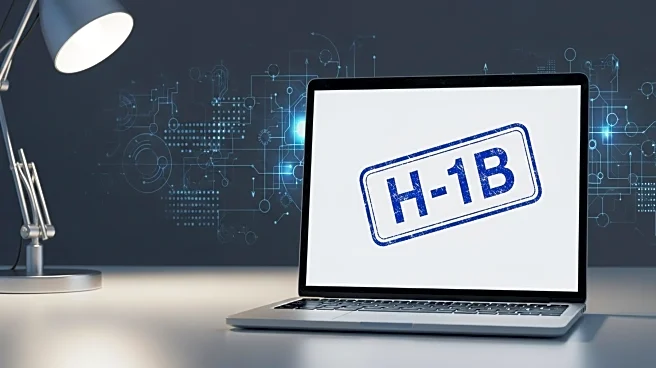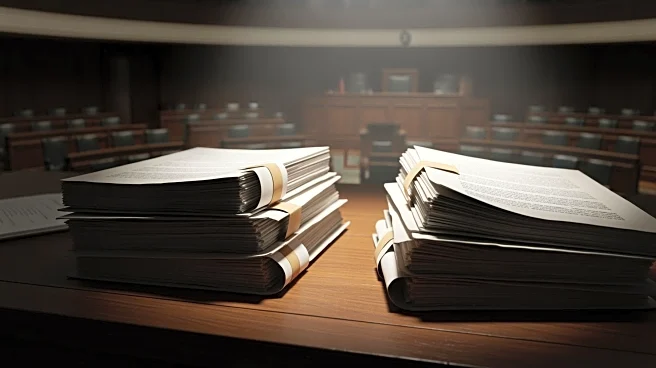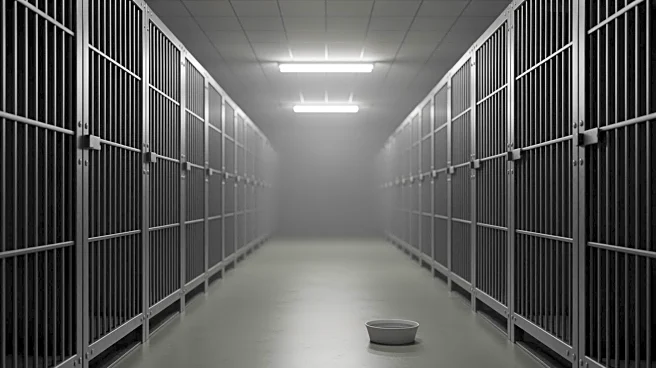What's Happening?
President Trump has announced a significant increase in the application fee for H-1B visas, raising it to $100,000. This change has caused concern within the tech industry, which relies heavily on these visas to recruit international talent. Jeremy Neufeld, director of immigration policy at the Institute for Progress, discussed the implications of this change, noting that while the intention behind the fee increase is to ensure that the 85,000 available H-1B visas are allocated to valuable workers, the implementation has been criticized for potential loopholes and misaligned priorities. Neufeld expressed concerns that the changes might deter top researchers from coming to the U.S., contrary to the administration's goals.
Why It's Important?
The increase in H-1B visa fees could have a profound impact on the U.S. tech industry, which is a major driver of economic growth and innovation. By making it more expensive to hire international talent, the policy may limit the ability of U.S. companies to compete globally, potentially slowing down technological advancements and economic progress. Companies that rely on skilled foreign workers might face increased operational costs, which could lead to higher prices for consumers or reduced investment in research and development. The changes could also affect the global perception of the U.S. as a welcoming destination for skilled professionals.
What's Next?
The changes to the H-1B visa program are currently in a 'notice and comment period,' allowing for public feedback. Depending on the responses, further modifications to the policy could be made. The tech industry and other stakeholders are likely to lobby for adjustments that address the identified loopholes and ensure that the visa program supports U.S. economic interests. The outcome of this period will be crucial in determining the future landscape of international hiring in the U.S. tech sector.









